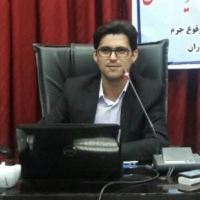Comparing the Effecacy of Acceptance and Commitment Therapy and Solution Focused Brief Therapy on Uncoditional Self-Acceptance and Pain Anxiety among Patients with Breast Cancer
Author(s):
Article Type:
Research/Original Article (دارای رتبه معتبر)
Abstract:
Background and Objective
Breast cancer affects the various aspects of mental health of patients and aggravates mental stress by causing disturbance in the mental image of the patient which consequently challenges patient’s mental health. The purpose of the present study was to compare the effecacy of acceptance and commitment therapy and solution focused brief therapy on uncoditional self-acceptance and pain anxiety among patients with breast cancer.
Materials and Methods
The study of was semi-experimental design with pre-test and post-test design and control group. The statistical population included all patients with breast cancer who were referred to health centers and hospitals in the cities of Babol and Babolsar, in northern Iran, in 2018. A sample of 90 patients was selected by random sampling method and three groups of 30 women with breast cancer were randomly divided into three groups. Acceptance and commitment therapy (ACT) and solution focused brief therapy (SFBT) was performed for experimental groups and no intervention was performed in the control group. To obtain the data, the scale of pain anxiety symptoms and unconditional admission questionnaire were used. To analyze the data, multivariate analysis of covariance and statistical software SPSS 23 were used.
Results
The mean (SD) age of participants in the ACT group was 36.2 (7.4), SFBT 35.7 (7.2), and the control group 38.1 (9.4) years. The mean (SD) pain anxiety score in the ACT group was 76.3 (10.5) in the pre-test which decreased to 52.7 (10.2) in post-test (P<0.001); and from 77.1 (8.4) in the pre-test to 67.1 (6.4) in the post-test in SFBT group (P<0.001). The mean (SD) unconditional self-acceptance score in the ACT group increased from 60.3 (5.6) to 94.1 (21.5) in the post-test (P<0.001); and from 62.4 (3.1) in the pre-test to 90.4 (9.3) in the post-test in the SFBT group (P<0.001). However, the mean (SD) of both variables in the pre-test and posttest of the control group did not show a significant difference. The acceptance and commitment therapy was more effective than solution focused brief therapy (P<0.01).
Conclusion
The study showed that both acceptance and commitment therapy and solution focused brief therapy had a desirable effect on reducing pain anxiety and increasing unconditional self-acceptance in patients with breast cancer; however, the acceptance and commitment therapy was more effective than solution focused brief therapy.Keywords:
Language:
Persian
Published:
Journal of Community Health, Volume:6 Issue: 3, 2019
Pages:
253 to 263
magiran.com/p2000411
دانلود و مطالعه متن این مقاله با یکی از روشهای زیر امکان پذیر است:
اشتراک شخصی
با عضویت و پرداخت آنلاین حق اشتراک یکساله به مبلغ 1,390,000ريال میتوانید 70 عنوان مطلب دانلود کنید!
اشتراک سازمانی
به کتابخانه دانشگاه یا محل کار خود پیشنهاد کنید تا اشتراک سازمانی این پایگاه را برای دسترسی نامحدود همه کاربران به متن مطالب تهیه نمایند!
توجه!
- حق عضویت دریافتی صرف حمایت از نشریات عضو و نگهداری، تکمیل و توسعه مگیران میشود.
- پرداخت حق اشتراک و دانلود مقالات اجازه بازنشر آن در سایر رسانههای چاپی و دیجیتال را به کاربر نمیدهد.
دسترسی سراسری کاربران دانشگاه پیام نور!
اعضای هیئت علمی و دانشجویان دانشگاه پیام نور در سراسر کشور، در صورت ثبت نام با ایمیل دانشگاهی، تا پایان فروردین ماه 1403 به مقالات سایت دسترسی خواهند داشت!
In order to view content subscription is required
Personal subscription
Subscribe magiran.com for 70 € euros via PayPal and download 70 articles during a year.
Organization subscription
Please contact us to subscribe your university or library for unlimited access!


